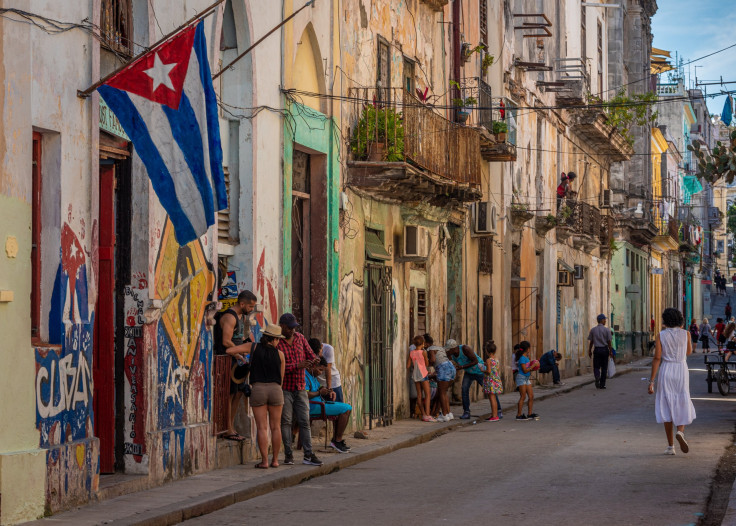
Cuba is experiencing an island-wide blackout on Friday following the failure of one of the country's main power plants, officials said.
The energy ministry announced that a failure at the Antonio Guiteras Power Plant caused the "total disconnection of the National Electrical System" since 11 a.m. ET.
The crisis was building up, as the government had already told many state workers to stay home. School classes were also cancelled on Friday and nightclubs and recreation centers will be closed during the weekend. Only "indispensable workers" are required to attend their jobs, the government said.
"The country's leadership is absolutely dedicated to addressing and solving this energy-related contingency that is of high sensitivity to the nation. There will be no rest until power is back," said President Miguel Díaz-Canel.
Desde la dirección del país estamos dedicando absoluta prioridad a la atención y solución de esta contingencia energética de alta sensibilidad para la nación.
— Miguel Díaz-Canel Bermúdez (@DiazCanelB) October 18, 2024
No habrá descanso hasta su restablecimiento. https://t.co/QbdZh43LRo
It is the latest development in Cuba's downward economic spiral, which continues to deepen with no end in sight. In mid-September, hundreds of thousands of Cubans were left without running water. Over 600,000 people, or 5% of the population was affected by it.
The government has also reduced the subsidized bread rations given to the population, slashing it by a quarter. The bread has gone from 80 grams to 60, Reuters reported. It is expected to have a considerable impact, as most Cubans don't earn enough to afford non-subsidized goods in the private market.
The country's authoritarian government said it was running out of flour needed to produce the bread, saying it was a result of the decades-long embargo the U.S. has imposed on the island.
However, the embargo has been going on for decades and the current crisis has deepened over the past months. It has gotten to a point where the Díaz-Canel government sought help from the World Food Programme to guarantee the provision of powdered milk, also scarce in the island.
A recent study published by the Cuban Observatory of Human Rights (OCDH) and titled "The State of Social Rights in Cuba," indicates that 89% of the population will end the year living in extreme poverty.
The OCDH conducted interviews with over 1,000 adults across 78 municipalities, revealing that 72% of respondents consider the food crisis the most pressing issue. A significant portion of the population, particularly those over 70, struggle to afford or access sufficient food. Moreover, only 15% of Cubans regularly eat three meals a day.
This economic decline has led to a significant exodus, with the Cuban population decreasing by 18% over the past three years, according to a study by a local demographer.
© 2025 Latin Times. All rights reserved. Do not reproduce without permission.





